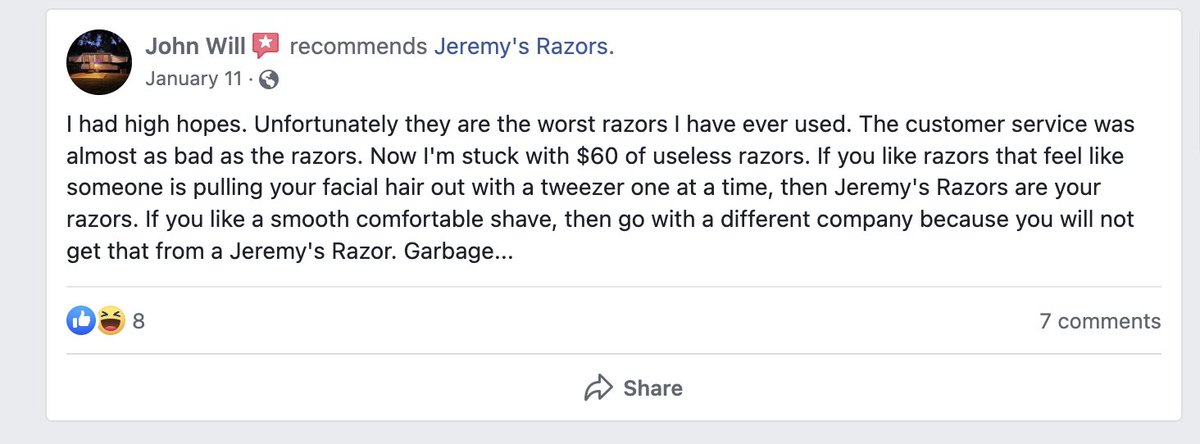The Price We Pay for Free Services on the Internet
We’ve all been told that the creepy ads that follow us around the Internet are the price we have to pay for all the free services we enjoy. But what if the price is too high and there was another way?

Julia Angwin
Investigative journalist. @NYTOpinion writer. Founded @themarkup. Formerly @ProPublica, @WSJ. Author of Dragnet Nation, Stealing MySpace. @julia@journa.host.

-
We’ve all been told that the creepy ads that follow us around the Internet are the price we have to pay for all the free services we enjoy.
— Julia Angwin (@JuliaAngwin) April 6, 2023
But what if the price is too high and there was another way?
Thread on my latest @NYTOpinion piece:
https://t.co/WdUkkRIlGz -
Ads used to be sold based on context: Financial advertisers in the Wall Street Journal and fashion advertisers in Vogue.
— Julia Angwin (@JuliaAngwin) April 6, 2023
But the Internet blew that up. Once advertisers could track users across the Internet, they could find a person interested in fashion or finance anywhere. -
That has decimated publishers, particularly in news where ad revenue has plummeted from $107 billion in 2000 to nearly $32 billion in 2022.
— Julia Angwin (@JuliaAngwin) April 6, 2023
It has also enabled advertisers to discriminate, allowed politicians to target divisive messages and been exploited by nation states. -
A recent 274-page study by the European Commission concludes that the societal cost of microtargeting outweighs the benefits and calls for reforming the surveillance advertising model. https://t.co/iearHL7cjn
— Julia Angwin (@JuliaAngwin) April 6, 2023 -
And a new study brings a new insight: targeted advertising is not increasing consumer welfare.
— Julia Angwin (@JuliaAngwin) April 6, 2023
Researchers at @CarnegieMellon Eduardo Mustri @ssnstudy and Virginia_Tech @IdrisAdjerid compared targeted ads shown to 500 study participants with identical products in web search. -
They found that the targeted ads displayed products that were 10 percent more expensive and more than twice as likely to be sold by lower-quality vendors as measured by their Better Business Bureau ratings.https://t.co/3bDGYixLs0
— Julia Angwin (@JuliaAngwin) April 6, 2023 -
I looked at the top advertiser on Facebook in the past month: it was a self-declared “anti-woke” razor company called Jeremy’s Razors that targeted men who liked Ultimate fighting, hunting and Johnny Cash. But many in the audience found the razors to be sub-par. pic.twitter.com/bLzG2wFPpq
— Julia Angwin (@JuliaAngwin) April 6, 2023 -
So if consumers and publishers aren’t benefiting from targeted ads, who is? The adtech companies - such as Facebook and Google - that track users and sell access to them have been racking up record profits for decades. pic.twitter.com/QLBx9ALuGY
— Julia Angwin (@JuliaAngwin) April 6, 2023 -
The ad industry is gearing up for war against lawmakers’ growing unease. The CEO of the online ad industry trade group has said “Extremists are winning the battle for hearts and minds in Washington DC and beyond. We cannot let that happen.” https://t.co/jUOlDQC3lb
— Julia Angwin (@JuliaAngwin) April 6, 2023 -
Last month, a group of advertisers and others that calls itself “Privacy for America” sent a letter to Congress warning that any harm to the “responsible data-driven” surveillance business model could cost consumers $30,000 in economic value each year.
— Julia Angwin (@JuliaAngwin) April 6, 2023 -
The $30,000 numbers comes from a study published in 2019 that asked people what they would pay to not lose access to online services. Participants were willing to pay about
— Julia Angwin (@JuliaAngwin) April 6, 2023
$17,000 for search
$8,000 for email
$3,000 for mapshttps://t.co/SqTVh9PuY4 -
But the funny thing about those numbers is they don’t make a case for commercial surveillance. Those services are mostly funded by traditional contextual advertising.
— Julia Angwin (@JuliaAngwin) April 6, 2023
Search engine and map ads are placed near content & email is a freemium model. -
After all, there’s no reason Jeremy’s Razors needs to know anything about you. They could do what advertisers have always done: advertise near related content. And lord knows, there is plenty of “anti-woke” content to choose from online.
— Julia Angwin (@JuliaAngwin) April 6, 2023 -
In the age of AI, isn’t it time that we trained our powerful classification software on categorizing content for advertisers to place ads near rather than on classifying us? /end
— Julia Angwin (@JuliaAngwin) April 6, 2023
